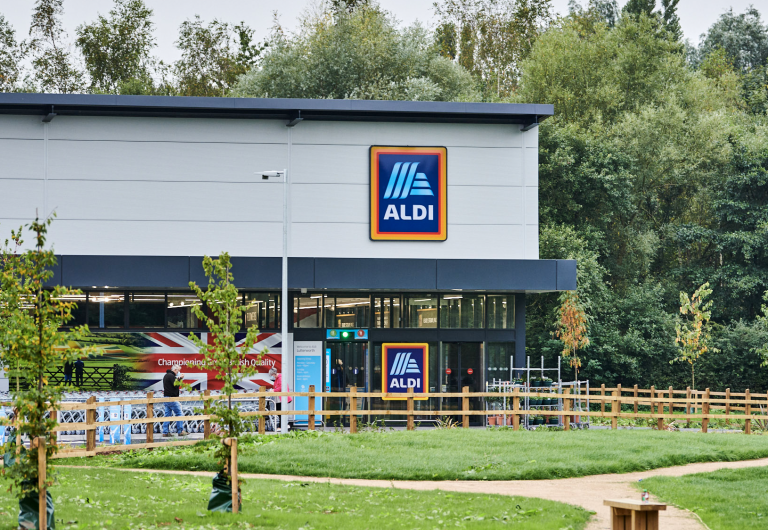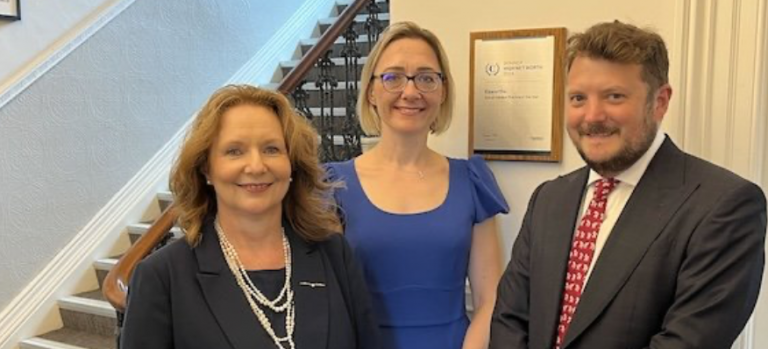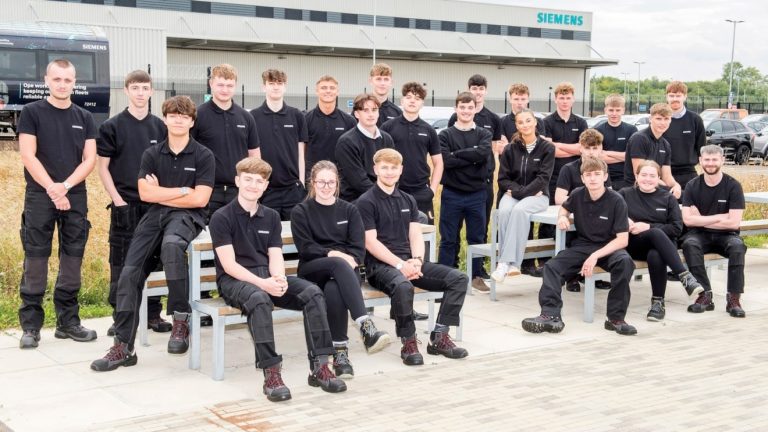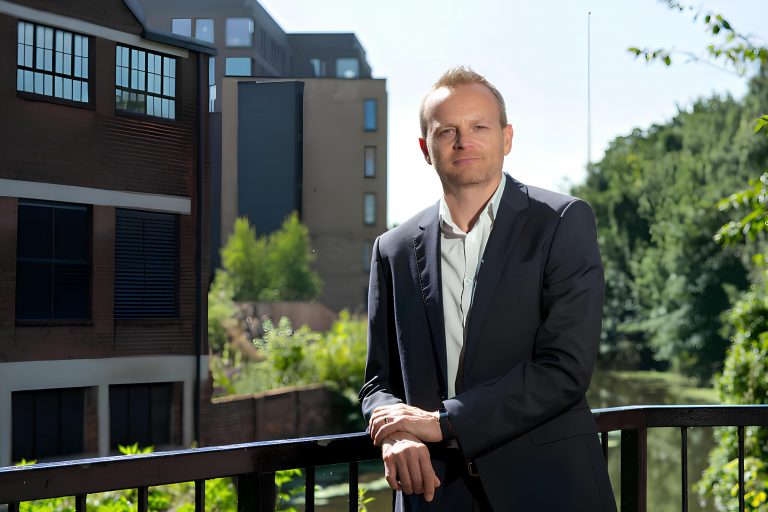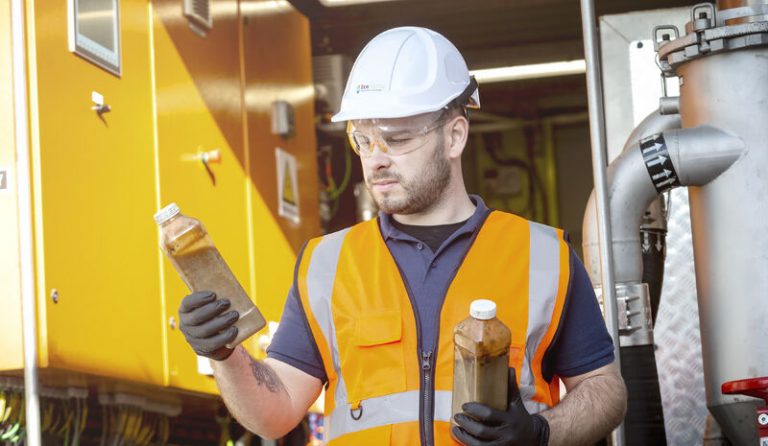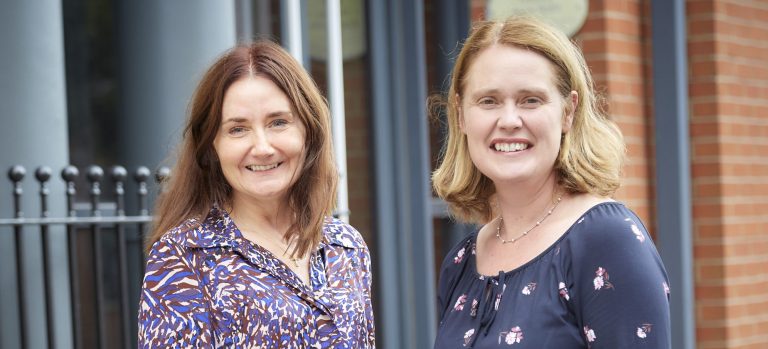Energy consultancy lets Wakefield office suite for headquarters
Flint Bishop prepares for further growth with strategic appointment of new Chief Information Officer
Aldi searches for site in Cleethorpes as part of £800m nationwide investment
Aldi is looking for a site in Cleethorpes as part of a nationwide investment of £800m, its largest-ever package of annual investment.
In its annual trading update, Aldi said it plans to open 23 new locations before the end of the year – marking a record £800m investment programme during 2024.
Richard Thornton, Communications Director at Aldi UK, said: “We are committed to bringing high quality, affordable groceries to millions more British families.
“With more than 1,000 stores across the country, our footprint is definitely growing, but we know there are still a number of towns that either don’t have an Aldi or have shown demand for more stores.”
The supermarket is searching for freehold town-centre, edge-of-centre, and retail park sites suitable for property development. The sites should be able to accommodate a 20,000 sq foot store with around 100 parking spaces. Ideally the location will be near a main road with good visibility and access.Mayoral Authority spending pumps £150m into South Yorkshire
Charity launches free jobs fair for Bradford women
Women jobseekers in Bradford are being encouraged to attend a free jobs fair hosted by charity Smart Works Leeds in partnership with Ilkley-based High Speed Training.
The event, on 24th September at Bradford City Football Club, will provide local women with an opportunity to meet employers who are keen to bring more women into their workforce, with a variety of live vacancies and training opportunities.
Lottie Roberts, Outreach Manager at Smart Works Leeds, said: “We are so proud and excited to host our first Women Into Work Bradford Jobs Fair, an event to connect women in attendance to prospective employers directly. Our clients often tell us that job application processes are confusing, that they struggle to find opportunities, and that it is really hard to get in front of employers.
“Through this event attendees will be able to find out more about the rich range of vacancies available in Bradford and the surrounding areas and speak personally to top employers- to get advice about making applications and further their job search. It is an honour to do an event on this scale for the women of Bradford.”
Smart Works Leeds is a women’s employment charity offering free interview coaching and a dressing service so women can feel confident and be empowered to find a job quickly. It supported over 800 women across Yorkshire in 2023, and are on course to help 1000 women a year by 2025. 63% of the women supported by Smart Works are in employment within one month of their appointment.
The Women Into Work Jobs fair is being sponsored by Ilkley-based online training provider High Speed Training, who are members of Smart Works’ Collective, corporate supporters’ network. A registered B-Corp, High Speed Training believes in using their business as a force for good and one of the issues that they focus on is employability.
The last job fair hosted by Smart Works saw more than 360 women attend to speak to prospective employers, and was attended by a range of local businesses, including Lloyds Bank and Morrisons, who will be returning to the Bradford event. They will be joined by a host of other top employers including Yorkshire Water, Solenis, and the National Media Museum.
Harrogate firm changes leadership at the top of its Trusts, Wills and Estates team
Harrogate-based Raworths has changed the leadership of its Trusts, Wills and Estates team with partners Alison Walker and Sam Jenner stepping up to take over as joint heads of the 23 strong department.
Alison’s and Sam’s promotions will enable the former Head of TWE, Rachel Tunnicliffe to focus on expanding her other leadership roles as Senior Partner at Raworths and Head of Private Client Services. She will continue to manage her existing portfolio of client work offering specialist legal advice on wills, trusts and succession planning.
Rachel said: “I’m so proud of this incredible team. On the back of achieving national recognition at the recent Chambers HNW awards now is the perfect time to hand over the reins. Alison and Sam each bring a unique set of skills and knowledge which together make for an inspirational leadership team. I’m looking forward to embarking on a new chapter at Raworths, supporting our Managing Partner, Simon Morris, in my role as Senior Partner and Head of Private Client Services – and continuing to work with my clients, many of whom I’ve advised for more than 2 decades and who I hope to continue working with for a long time to come.”
Alison Walker, who joined Raworths in 2015, advises on all aspects of wills, trusts and wider succession, wealth structuring and tax issues, particularly for business owners. Alison has specialist knowledge in the administration of complex estates, with business interests and overseas property. Sam Jenner, who has been with the firm since 2014, offers a breadth of technical expertise on complex succession planning, administration of estates, family investment companies, wills and tax. Sam is also involved in leadership on the firm’s IT projects. Both Sam and Alison play an instrumental role in mentoring younger members of the team.
Alison commented: “I’d like to thank Raworths for this opportunity. Rachel has been an inspirational leader over the last ten years, and I’m looking forward to continuing to work alongside Sam to oversee the future direction of the team, whilst providing the very best service to our clients.”
Sam added: “I have really enjoyed mentoring junior team members and as joint head of TWE, I hope to play an even bigger role in the development of the next generation of talented lawyers. Raworths has a special culture that places value on building relationships, as a team within the firm and with our clients and referrers. Alison and I both have families – and I’m glad that Raworths supports joint leadership roles that enable us to have work/life balance, which can only be a positive for both our professional and personal lives.”
Two dozen young people start work at Siemens Mobility in Goole
Yorkshire and the Humber sees one of the most marked falls in insolvency-related activity in UK
No funding for road will cost us £350m in lost economic benefit, says Lincolnshire County Council
Plans for Hykeham Relief Road near Lincoln are dead in the water if Government won’t stump up a previously-promised £110m, according to Lincolnshire County Council.
UK economy stands still in July
Yorkshire Water tech trials could turn fatbergs into fuel for its van fleet
Dental studio signs lease to double the size of its footprint at The Springs
Government in talks to ‘get Britain working again’
“The board’s knowledge, expertise and insight will help us to rebuild Britain as we deliver our growth mission, drive up opportunity and make every part of the country better off.”
Paul Gregg, Chair of the Labour Market Advisory Board said: “Having studied the UK’s labour market across several decades, it is clear that the current labour market faces a deep-seated set of challenges. “We have seen a sharp increase in economic inactivity and long-term sickness, most notably in our young people post-pandemic. Further, real wage growth has been heavily supressed for 15 years hitting living standards and government tax revenues. Reversing these trends will be key to ensuring the long-term prosperity of the UK’s labour market.“I look forward to working with members of the board and the Secretary of State to support her vision for growth and examining positive solutions to address inactivity and harness the true potential of the UK’s labour market.”
Lincolnshire County Council sells land at Kirton to grow local economy
Lincolnshire County Council has sold 10.16 acres of development land to expand Kirton Distribution Park.
Law firm to offer free advice briefings for business
Goole chemicals business takes majority stake in West Yorkshire firm
Over £4m allocated from Mayoral Investment Fund in York and North Yorkshire
Schneider Electric to invest £42m in new North Yorkshire manufacturing site
Hotel in Yorkshire Dales National Park sold
Plans submitted for 331 new Wakefield homes
Plans for 331 new homes in Normanton have been submitted to Wakefield Council by housebuilder Persimmon.
The site on Wakefield Road is allocated for housing in Wakefield’s Local Plan which aims to increase the number and types of houses available to local homebuyers. A range of house sizes will be provided, ranging from bungalows to two, three and four-bed properties. 33 of the homes will be transferred to a local housing provider. Built to new building regulations, all homes will be fitted with EV chargers and air source heat pumps. James Parkin, Land Director, Persimmon West Yorkshire, said: “We’re delighted to have submitted plans for a new development in Normanton. “This development will provide high-quality new homes for local homebuyers, built to a high design standard in keeping with the local area. “With the need for new housing rightly high up the political agenda, we’re pleased to be working with Wakefield Council and local stakeholders to deliver homes for first-time buyers, families and downsizers alike.”



